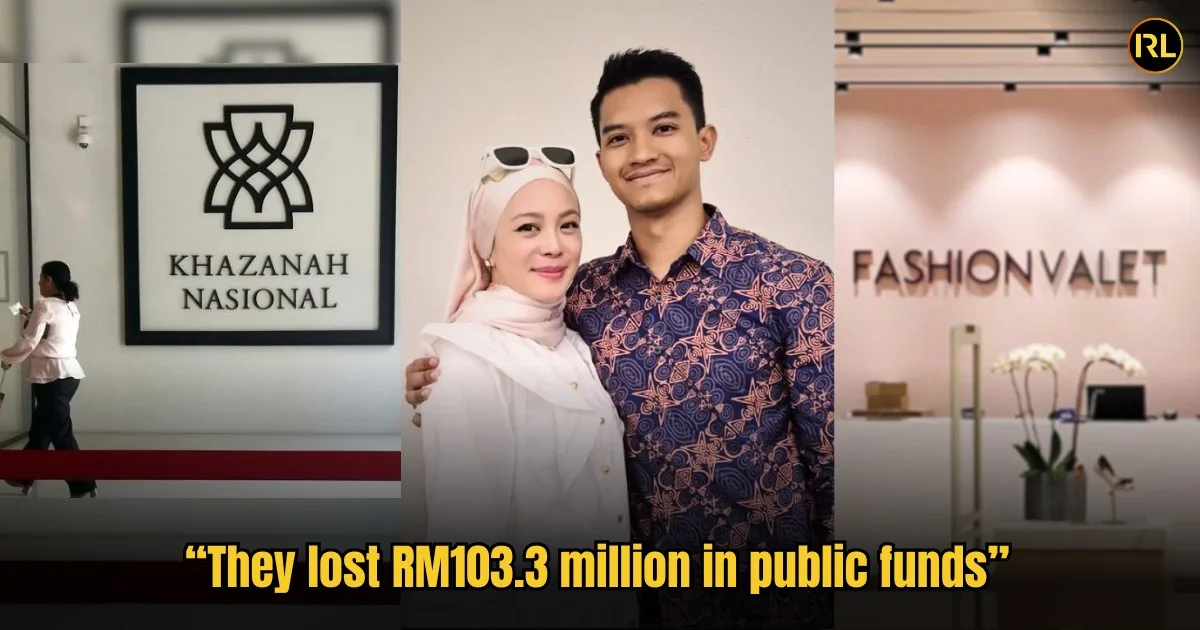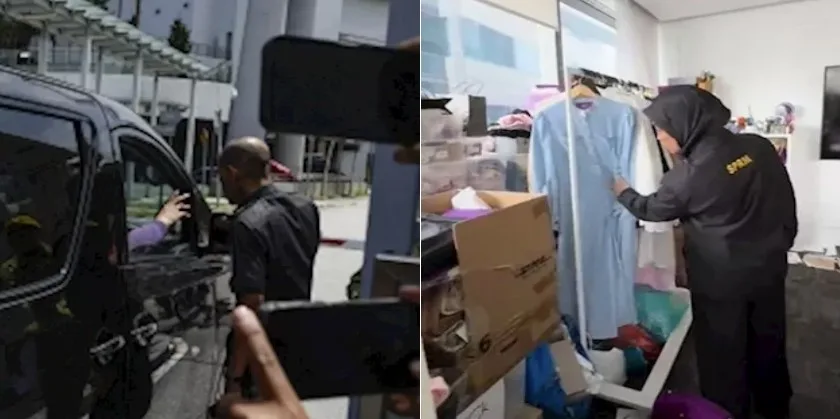
What is the real reason behind Khazanah and PNB’s failed investments in FashionValet?
Local e-commerce fashion brand FashionValet has found itself at the center of a public controversy. Recent financial reports have revealed staggering losses, with the company recording a cumulative RM103.3 million loss from 2018 to 2023.
But the real issue is the involvement of Malaysia’s sovereign wealth fund Khazanah Nasional Berhad and fund management firm Permodalan Nasional Berhad (PNB).
Back in 2018, they had invested a combined RM47 million into the venture. Now in 2024, it was revealed by the Ministry of Finance (MOF) that Khazanah and PNB received a paltry RM3.1 million from divesting their shares in the company, in what was described as a ‘responsible exit’.

Then on Monday, the Malaysian Anti Corruption Commission (MACC) raided FashionValet’s offices, the Finance Ministry, Khazanah, and PNB in one simultaneous move, and on Tuesday, froze 11 bank accounts worth RM 1.1 million from FashionValet’s founders. 11 handbags and 1 luxury watch with an estimated value of RM200,000 were also seized.
This latest development follows a social media post by FashionValet co-founder Vivy Yusof that sparked widespread backlash. In the now-deleted post, Yusof shared an image featuring a wall of luxury handbags she was reportedly donating to charity.

Image via vivy yusof (instagram)
The post quickly drew scrutiny from netizens, who questioned how she had amassed such a collection, particularly given FashionValet’s reported financial struggles.
Public outcry about Fashion Valet is now reshaping what transparency means for entrepreneurs in Malaysia.

For Khazanah and PNB, the losses in FashionValet may be financially minor compared to their broader portfolios. Yet, what angers the public is the apparent lack of accountability and transparency.
“If this is a private Venture Capital, no one is going to judge you because you are “betting” on your own money at the end of the day,” shares Frasier Hu, freelance contractor.
“Public funds have been wasted, so there needs to be transparency and yes, consequences too.”
“Sure, Khazanah has some investment arms for startups,” adds Amir Rahman, 38, an economic policy consultant, “but those don’t necessarily belong in a sovereign fund’s portfolio. Startups generally lack the accountability of regular businesses—no annual reports, fewer performance benchmarks. Just because Khazanah is structured to invest this way doesn’t mean the public should accept it without question. We’re talking about public funds here.”
Many are also critical of the founders, whose social media presence displays luxury goods and an affluent lifestyle, which seems at odds with a company heavily reliant on public funds.
Despite the founders stepping down and issuing an apology, the public remains unconvinced, with many also criticizing Khazanah and PNB for the failed investment.
“Look, Khazanah is a sovereign fund,” says Adeline Lee, 45, a financial analyst. “At this point, they have two choices: they can admit they made a big mistake, or they can admit there may have been corruption involved. Either way, someone has to go.”
Lessons for Venture Capital and Malaysian Entrepreneurs
While venture capital investments inherently involve risk, the FashionValet case underscores the importance of responsible financial management, especially in the current post-1MBD political climate. In the wake of public anger at mismanagement of funds, Khazanah, as a sovereign fund, should be expected to prioritize low-risk, high-return investments over startups prone to high failure rates.
Coupled with the rising cost of living and the lack of job opportunities for advancement, it is clear that many believe that Vivy Yusof and her husband are undeserving of having these funds entrusted to them in the first place, and should be penalized for it.
For aspiring entrepreneurs, the FashionValet story is a lesson in humility and transparency. The case of FashionValet, along with Khazanah and PNB’s investment, is a reminder that public accountability is essential.
What do you think should be done about FashionValet?
Email us at ym.efillaerni@olleh and your opinion may be featured on In Real Life Malaysia.
Also read: How Did Malaysia Lose the Billion Dollar Taylor Swift Tour to Singapore?
How Did Malaysia Lose The Billion-Dollar Taylor Swift Tour To Singapore?
More from Viral News
“I Miss My Home,” Shares M’sian Cosplayer Who Lost Everything in Putra Heights Explosion
This story is about Elizabeth Mae Hendroff, a Malaysian content creator and cosplayer whose life was turned upside down by …
“The Windows Were Shaking” Victims of the Putra Heights Gas Fire Share Their Firsthand Experiences
Residents of Putra Heights recall their narrow escape from a 30-meter high inferno that erupted from a gas leak in …
“RM15 For Roti John? Even McD Cheaper Lah,” Shares M’sian Shocked By Ramadan Bazaar Prices
Every Ramadan, Malaysians look forward to the festive bazaars selling mouthwatering dishes, from ayam percik to murtabak. But this year, …















